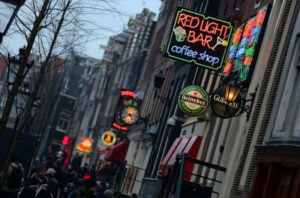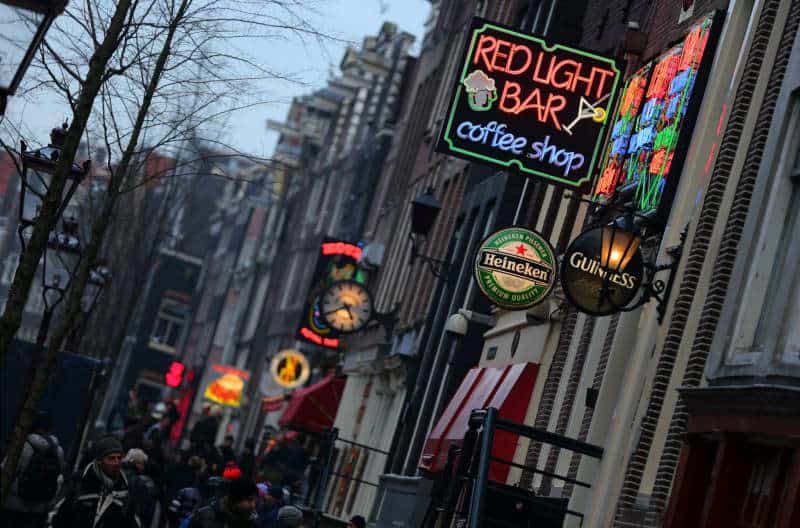
DPA

Amsterdam, a city that wants to claim back its picturesque canals, coffee shops and collection of Rembrandt artworks from tourists, has been cracking down on overtourism in recent months, with new laws already hitting Airbnb listings.
As part of a number of measures to slow tourist numbers, the city has banned landlords from renting out properties in central parts of the city on platforms like Airbnb.
After the introduction of stricter rules regulating the renting out of private rooms and apartments in Amsterdam, the city has now seen an 80-per-cent drop in the number of listings for the city on Airbnb, a spokesperson for the city authorities has said.
The measure comes as part of a broader effort to limit the numbers of tourists arriving in the city and make it more liveable for residents. In 2019 more than 20 million people visited the city, which has only around 800,000 inhabitants.
While tourists can still find Airbnb listings in Amsterdam, finding a suitable date inside the city is now expected to be significantly more difficult. However, the platform expects that more tourists will now simply look for accommodation outside the city proper, where the new rules do not apply.
Since the start of October, anyone wanting to rent out a flat to tourists has to register it with the city beforehand. As a result, the number of accommodation listings found for the city online has dropped drastically across all online portals, with market leader Airbnb dropping from over 16,200 accommodation listings in the spring to around 2,900 now.
Amsterdam has already tried several times before to curb private room rentals, mainly to counter the housing shortage in the city and to reduce mass tourism.
From October, landlords have had to include a registration number in their online listing, making it far easier for the authorities to track down unregistered properties.
Airbnb has been co-operating with the Amsterdam authorities and has so far removed all ads posted without a valid registration number.
The city’s measures against overtourism don’t stop with Airbnb listings: Amsterdam has also previously announced plans to cut tourists off from one of the city’s biggest draws: drugs in an effort to stop drug tourism.
In the Netherlands, soft drugs like hash and marijuana are legal to buy in coffee shops for personal consumption.
In principle, only residents of the country are allowed to buy drugs in the coffee shops, but Amsterdam has an exemption. For this, however, the city had to greatly reduce the number of outlets.
But drug tourism, especially from Britain, increased sharply. Studies have shown that mass tourism will strongly decrease with a ban on access to coffee shops.
Amsterdam has also cracked down on other tourist attractions, such as group tours through the red-light district.


Recommended Comments
There are no comments to display.